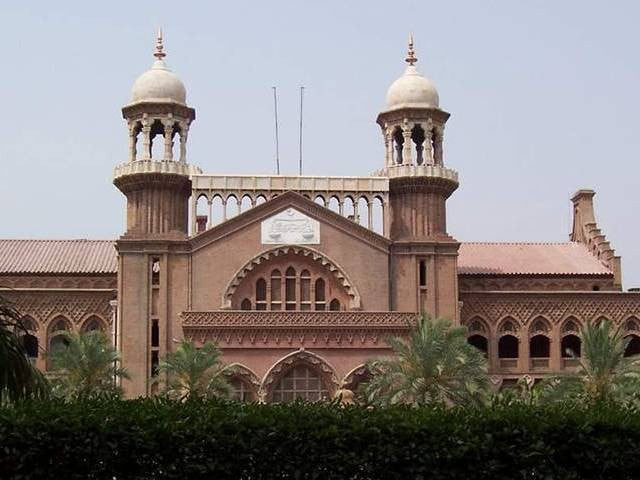PTI chief moves LHC against bails’ cancellation order
ATC dismissed his pre-arrest bails in seven cases, including Jinnah House attack case

Former prime minister Imran Khan on Thursday challenged the decision of the anti-terrorist court, which dismissed his pre-arrest bails in seven cases, including the Jinnah House attack case, in the Lahore High Court.
The PTI chief filed a petition in the LHC through his counsel Salman Safdar.
He stated that he was currently incarcerated in Attock jail after being sentenced by a trial court in the Toshakhana case, hence, it was not possible to ensure his presence before the court.
The LHC Registrar's Office had objected as attested copies of certain documents were not attached to the case file. However, a division bench would hear the matter.
"The petitioner found himself implicated in seven cases encompassing offenses under the PPC in conjunction with sections 6/7 of the Anti-Terrorism Act, 1997. To circumvent arrest, the petitioner, having obtained protective bail from the High Court, voluntarily surrendered before the Learned Special Judge Anti-Terrorism Court. Subsequently, ad-interim pre-arrest bails were secured across all seven cases, and also joined in the investigation," the petition said.
"The petitioner made physical appearances before the Trial Court, dutifully marking his attendance, a fact readily evident from the interim orders. Further, the petitioner continued presenting himself before the Special Judge of the Anti-Terrorism Court. However, despite these efforts, the bail petitions were not heard, and the cases were adjourned after marking attendance. The Anti-Terrorism Court diligently deliberated over comprehensive arguments presented by both parties in relation to two pre-arrest bail applications associated with Case FIR No388/23 and 410/23, ultimately reserving the same for Final Order. Out of seven bail applications, the Learned Special Judge presiding over the proceedings meticulously heard complete arguments and adjourned the case for announcing of the order.
"On August 8, 2023, all seven bail applications, filed under Section 498 of the Code of Criminal Procedure, 1898 in conjunction with 21-D of the Anti-Terrorism Act, 1997, were fixed for final arguments and a verdict before the Judge Anti-Terrorism Court Lahore. Here, on behalf of the petitioner, an application was presented, seeking an exemption from personal appearance, alongside a prayer requesting an Order for petitioner's production from Attock Jail," Imran's petition added.
Subsequently, notices were issued to the state, and the case was fixed for Aug 11, 2023, on the maintainability of the application filed on behalf of the petitioner, with the following direction: “An application is submitted on behalf of petitioner Imran Ahmad Khan Niazi for his personal exemption on the ground that he is in prison and is unable to attend the court and requested for an adjournment while dispensing with his personal attendance.
"Since the accused/petitioner is a convicted prisoner, hence notice to the prosecution is also given and learned counsel for the petitioner is directed to argue upon the point of maintainability of said application.
"Regrettably, instead of rendering a judgment based on the merits of the pending pre-arrest bail applications and simply ordering the petitioner’s production from the Attock Jail, the Anti-Terrorism Court Judge dismissed all seven bail applications due to the petitioner's non-appearance before the Court, hence causing grave miscarriage of justice."
The petition added that the ATC judge "unjustly and erroneously dismissed the petitioner's applications, bail petitions, neglecting to engage in a thorough discussion of their merits".



1724319076-0/Untitled-design-(5)1724319076-0-208x130.webp)















COMMENTS
Comments are moderated and generally will be posted if they are on-topic and not abusive.
For more information, please see our Comments FAQ